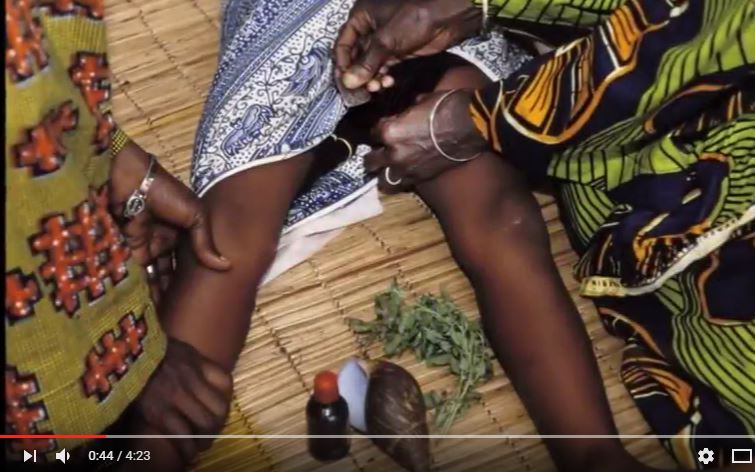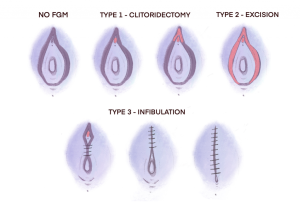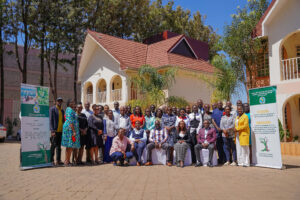I AM ‘IRIKUNENE’ (The Uncircumcised)
-A rikunene is not valued, she is considered a girl without morals-

The struggle to end FGM in Kenya and Africa/Global Voices
I was born in Nyakehomo Village, Kuria East Migori County to a family of five children, my mother hails from Kisii, while my father was born and raised in Kuria.
My father was a farmer before he died and my mother now a business lady. I am the first born in a family of four girls and one boy, We have been raised in a religious family like many of our neighbours.
My mother is a staunch Christian, as i was growing up; circumcision peculiarities were shaping my personality and social life in many ways.
Female genital mutilation is deeply rooted in Kuria Culture.
My Mother’s Christianity background saved me from undergoing the Cut as a young girl.
I have been mocked, most of my age mates have undergone the cut and no longer want to associate with me. In our village it is believed for the irikunene (the Uncircumcised) things don’t go well as they would for the circumcised( a popular myth that has been used to perpetuate the vice)
Irikunene is not valued, she is considered a girl without morals and one without a future.
Every year in the Month of December I have to run away from home, this is the period girls are kidnapped and forced into female genital mutilation.
Across the world, an estimated 140 million women are said to be affected by such mutilations and a further three million girls continue to be at risk each year.
Though FGM is illegal in Kenya,it remains key to many cultures in the country.It defines a womans social status among the Kuria People of Kenya.
Growing up my mother would send me and my other siblings to live at my uncles until December month was over, I have been lucky for over 20 years now, but for how long must young girls like myself keep running away from the cut?
My mother’s strong personality has been a great pillar for me and my young sisters; it has saved us from Female Genital Mutilation.
If more mothers like myself would stand up for their girls ,FGM would come to an end.
According to the Kenya Demographic & Health Survey (KDHS) 2022, the prevalence of FGM is 15 percent in the country, meaning that 15 percent of girls and women aged 15 to 49 have been circumcised.

Many Girls in Kenya continue to bear the brunt of this violation that was declared illegal in the 2011 Prohibition of FGM Act.
Girls will be safer from FGM when mothers and close family members raise up to protect young girls and women from the Cut just like myself.
My name is Rahab Gati a gender equity journalist undertaking Journalism and Mass Communication at The Eldoret National Polytechnic,a journalist committed to ending Female Genital Mutilation by encouraging mothers and close family members to resist and protect their daughters and sisters from the cut.
Irikunene deserves her place in society.
Some of the consequences of FGM :
- Pain, bleeding, infection, tetanus, damage to nearby organs.
- Death risk.
- Difficulty urinating, urinary and gynecological infections
- Blood or sexually transmitted infections such as hepatitis and HIV
- Keloids and fibrosis
- Pain during sexual intercourse and/or absence of pleasurable sensation.





